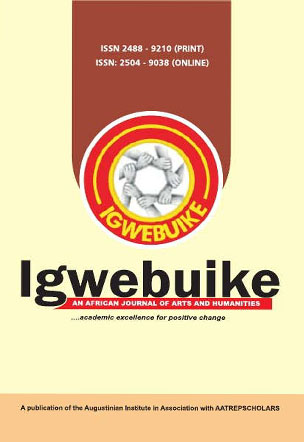
Vol. 9 No. 3, 2023
ABSTRACT
Justice is commonly defined as given each one his due. The state is supposed to the purveyor of justice for the citizens; she is supposed to be a mechanism that enables the reign of justice for all within the polis. By this descriptive, the state is apparently a powerful mechanism because she has the capacity to make and execute the law; to determine and punish crime. But, what becomes the fate of the masses when the state becomes abusive of power and begins to neglect the liberties of the masses? It is to overcomes the possibilities of occurrences like this that Nozick postulates that the idea of the minimal state. For him, state authority and powers are to be so minimal that it should concern only the defense of the rights and liberties of the masses from abuses. Hence, the core function of the state is to make laws that promote the freedom of the mases; not those that negate such freedoms. How well does the Nigerian state fit this Nozickian postulation? This article studies Nozick's idea of the minimal state. It uses this viewpoint to critically access the controversial water resources bill in Nigeria. The article finds out that contrary to Nozick's viewpoint the Nigerian state is a 'maximal state'. It concludes that, among other excesses, the water resources bill represents a core maximalist tendency of the contemporary Nigeria state.
